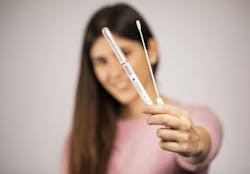BD announced U.S. Food and Drug Administration (FDA) approval for the use of self-collected vaginal specimens for human papillomavirus (HPV) testing when cervical specimens cannot otherwise be obtained.
The approval allows women to self-collect vaginal specimens for HPV testing in a healthcare setting, which could include non-traditional locations such as a retail pharmacy or mobile clinic.
The BD Onclarity HPV Assay is FDA-approved for HPV primary testing without the need for a traditional Pap smear performed with a speculum.
Cervical cancer is preventable, and screening plays a crucial role in early detection and prevention. According to the American Cancer Society, approximately 50% of cervical cancer diagnoses are in never-screened people, and 10% of diagnoses occurs in under-screened individuals. In addition, 25% of women in the U.S. do not receive regular cervical cancer screening, according to the National Cancer Institute.
The National Cancer Institute (NCI), part of the National Institutes of Health (NIH), has been working with BD in a public-private partnership called the Cervical Cancer "Last Mile" Initiative to address disparities in cervical cancer screening. As part of this initiative, BD will be a participant in the Self-collection of HPV testing to Improve Cervical Cancer Prevention (SHIP) trial, which will begin enrolling this summer, to evaluate accuracy of self-collection for HPV testing both in healthcare and other settings, including at home.
There are many strains (genotypes) of HPV viruses, with some strains posing a much higher risk for causing precancer and cancer than others. BD Onclarity reports six HPV strains individually.

